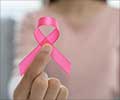- Soy consumption has previously been linked to cancer. But a new study has shown that soy could lower risk for breast cancer
- The fiber rich food contains isoflavones which lower mortality rate
- High consumption of soy was found to reduce the risk of breast cancer by 21%
Soy and Breast Cancer
Dr. Fang Fang Zhang from the Friedman School of Nutrition Science and Policy at Tufts University said that the isoflavones which are the components of soy with estrogen-like properties are associated with a reduction in the rate of growth of breast cancer cells under laboratory conditions. Dr. Zhang further stated that an epidemiological analysis of East Asian women with breast cancer showed that elevated intake of isoflavones was associated with reduced mortality. The major limitation is that the isoflavanols with the estrogen-like effects lowered the efficiency of the hormone therapy for breast cancer. This has led to the confusion about whether the intake of soy should be recommended or whether it should be restricted.Dietary Intake of Isoflavones
The association between intake of dietary soy and death that occurs due to any cause was studied by Dr. Zhang and her colleagues. The study was conducted on 6235 Canadian and American women who were diagnosed with breast cancer, for a period of nine years. The findings of the study showed that- There was a 21% lower risk of death among women with breast cancer with high intake of isoflavones when compared with women who consumed low amounts.
- The reduction in risk was found to be mostly associated with women who had hormone receptor-negative tumors and who were not on tamoxifen therapy.
- There was no increase in mortality when there was an increased intake of isoflavones among women who received hormone therapy, which is contrary to earlier studies.
- High soy intake was found to have a protective effect among women with hormone receptor-negative breast cancer.
The survival rate among women with hormone receptor-negative breast cancer was more than 20%, as it is a more aggressive form of cancer. Dr. Esther John from the Cancer Prevention Institute of California said that the results of the study showed that increased intake of isoflavones improved survival rates. The study involved the intake of dietary soy from foods and not from supplements.
The exact mechanism of action of these isoflavones and their interaction with breast cancer cells is not well understood but previous studies indicate the following properties of the soy foods
- Anti-inflammatory
- Antioxidant
- Anti-angiogenic
Effect of Soy on Women’s Health
Earlier studies have shown that soy foods are important for women’s health.- It is a primary source of isoflavones and is found to protect against multiple myeloma ovarian cancer and breast cancer.
- Intake of soy foods by women with breast cancer have reduced cancer recurrence
- 38% reduction in mortality among women who drink at least one cup of soy.
- Soy has a protective effect against endometrial cancer.
- 30% lowered endometrial cancer risk among women who consumed soy.
- Ovarian cancer risk reduced by half among women who consumed soy.
- Soy intake is found to reduce hot flashes, lower delay in the onset of premature menarche and puberty.
- Intake of soy is associated with lowered osteoarthritis symptoms with significant boost in bone mineral density. It could also prevent bone loss and improve new bone formation.
Soy Intake and Risk of Breast Cancer in Asian Americans
Dr. Anna M. Whu and colleagues from the Department of Preventive Medicine studied the risk of soy intake among adolescents and adults in Asian Americans. The scientists carried out a case control study to identify the role of traditional whole soy food of Asians on breast cancer risk.The results of this study showed that there was a significant reduction in the risk for breast cancer among adolescents and adults who consumed whole soy food.
- The effect of soy intake on breast cancer risk was more pronounced among adolescents than among adults.
- The scientists found a lasting protection when adolescents consumed soy
- Participants who consumed low amounts of soy in their diet during adulthood, but who were high consumers of soy during adolescence showed a 21% reduction in risk for breast cancer
- Studies conducted on a small sample size showed that low consumption during adolescence and high consumption during adulthood did not have a significant association with breast cancer risk. Though further studies are required to support this finding, if found to be true, it could lead better dietary inclusion of soy during adolescence.
Dietary Requirements for Soy
Soy is a plant protein which is rich in fiber, magnesium, potassium and other vitamins. Dr. Clare McKindley who is a clinical dietitian working with MD Anderson’s Cancer Prevention Center says that soy contains all the essential amino acids which are necessary to support the body’s vital functions. People on a vegan or vegetarian diet, especially people with food allergies can include soy in their diet to get the optimum level of amino acids. A moderate amount of soy in the diet is 3 daily servings, one serving could be- 1 cup of soy milk
- 1/3 cup of tofu
- 1/2 cup of edamame
- 1/2 cup cooked soybeans
References:
- Soy and Breast Cancer - (https://www.oncologynutrition.org/erfc/hot-topics/soy-and-breast-cancer/)
- Do soy foods increase cancer risk? - (https://www.mdanderson.org/publications/focused-on-health/september-2014/soy-cancer.html)
- Soy - (http://nutritionfacts.org/topics/soy/)
- Anna.H.Wu, Peggy Wan, Jean Hankin, Chieu, Chen Tseng, Mimi, C. Yu and Malcolm C. Pike “Adolescent and Adult Soy Intake and Risk of Breast Cancer in Asian Americans”; Carcinogenesis, 2002















